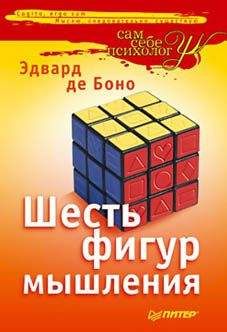Ознакомительная версия.
Cannon, W. B. “The Role of Chance in Discovery.” Scientific Monthly 50 (1940): 204–209.
Chastel, A. The Genius of Leonardo da Vinci. New York: Orion Press, 1961.
Chomsky, Noam. Language and Mind. New York: Harcourt Brace College Pubs., 1972 (Хомский Н. Язык и мышление. М.: Изд-во МГУ, 1972).
Clark, D. Great Inventors and Discoveries. London: Marshall Cavendish Books, 1978.
Clark, R. W. Einstein: The Life and Times. New York: World, 1971.
Conot, Robert. Thomas A. Edison: A Streak of Luck. New York: Da Capo Press, 1986.
Cox, Catharine. Early Mental Traits of Three Hundred Geniuses. Stanford, CA: Stanford University Press, 1926.
Crandall, R. “The Relationship Between Quantity and Quality of Publications.” Personality and Social Psychology Bulletin 4 (1978): 379–380.
Cropper, A. J. The Quantum Physicists. New York: Oxford University Press, 1970.
Csikszentmihalyi, Mihaly. Flow: The Psychology of Optimal Experience. New York: HarperCollins, 1991 (Чиксентмихайи М. Поток: Психология оптимального переживания. М.: Альпина нон-фикшн, 2011).
Culhane, John. Walt Disney’s Fantasia. New York: Harry N. Abrams, 1987.
Darwin, Charles. The Autobiography of Charles Darwin (1809–1882). New York: W. W. Norton, 1993 (Дарвин Ч. Воспоминания о развитии моего ума и характера // Дарвин Ч. Сочинения. Т. 9. М.: Изд-во АН СССР, 1959).
Darwin, Francis, ed. The Life and Letters of Charles Darwin. New York: Appleton, 1911 (Дарвин Ф. Воспоминания о повседневной жизни моего отца // Дарвин Ч. Сочинения. Т. 9. М.: Изд-во АН СССР, 1959).
–, ed. The Autobiography of Charles Darwin and Selected Letters. New York: Dover, 1958.
De Mille, Agnes. Martha: The Life and Work of Martha Graham. New York: Random House, 1992.
Dennett, Daniel. Kinds of Minds. New York: Basic Books, 1997 (Деннет Д. Виды психики: на пути к пониманию сознания. М.: Идея-Пресс, 2004).
Detolnay, C. Michelangelo: Sculptor, Painter, Architect. Princeton, NJ: Princeton University Press, 1975.
Eiseley, L. Darwin’s Century: Evolution and the Men Who Discovered It. New York: Anchor Books, 1961.
Everdell, William. The First Moderns. Chicago: University of Chicago Press, 1997.
Feynman, Richard. Surely You’re Joking, Mr. Feynman: Adventures of a Curious Character. New York: W. W. Norton, 1997 (Фейнман Р. Вы, конечно, шутите, мистер Фейнман! Ижевск: РХД, 2002).
Finch, Christoper. The Art of Walt Disney. New York: Harry N. Abrams, 1995.
Findlay, C. and C. Lumsden. “The Creative Mind: Toward an Evolutionary Theory of Discovery and Invention.” Journal of Social and Biological Structures 11 (1988): 3–55.
Finke, Ronald, ed. Creative Imagery: Discoveries and Inventions in Visualization. Hillsdale, NJ: Erlbaum, 1990.
Freud, Sigmund. A General Introduction to Psychoanalysis, reprint ed. New York: W. W. Norton, Liveright, 1989 (Фрейд З. Введение в психоанализ. СПб.: Алетейя СПб., 1999).
–. An Autobiographical Study, reprint ed. New York: W. W. Norton, 1989.
Garcia, Emanuel. Understanding Freud: The Man and His Ideas. New York: New York University Press, 1992.
Gardner, Howard. Arts and Human Development: A Psychological Study of the Artistic Process. New York: Wiley, 1973.
–. Frames of Mind, reprint ed. New York: Basic Books, 1993 (Гарднер Г. Структура разума: теория множественного интеллекта. М.: Вильямс, 2007).
–. The Mind’s New Science. New York: Basic Books, 1987.
–. Art, Mind, and Brain: A Cognitive Approach to Creativity. New York: Basic Books, 1984.
–. Creating Minds. New York: Basic Books, 1994.
Gedo, John. Portraits of the Artist. Hillsdale, NJ: Analytic Press, 1989.
Centner, D. “Structure-Mapping: A Theoretical Framework for Analogy.” Cognitive Science 7 (1983): 155–170.
Getzels, J., and Mihaly Csikszentmihalyi. The Creative Vision: A Longitudinal Study of Problem Finding in Art, New York: Wiley-Interscience, 1976.
Gilbert, D. T. “How Mental Systems Believe.” American Psychologist 46 (1991): 107–119.
Gilot, Francoise, and Carlton, Lake. Life with Picasso, New York: Doubleday, 1989 (Жило Ф., Лейк К. Моя жизнь с Пикассо. М.: ОЛМА-Пресс, 2001).
Gleick, James. Genius: The Life and Science of Richard Feynman. New York: Pantheon, 1992.
Goldsmith, D. The Ultimate Einstein, New York: Simon and Schuster, 1997.
Gordon, W. Synectics: The Development of Creative Capacity. New York: Dutton, 1961.
Grosvenor, Edwin, and Morgan, Wesson. Alexander Graham Bell New York: Harry N. Abrams, 1997.
Gruber, H. E. Darwin on Man, second ed. Chicago: University of Chicago Press, 1982.
–, and S. N. Davis. “Inching Our Way to Mount Olympus: The Evolving Systems Approach to Creative Thinking.” In The Nature of Creativity, edited by R. J. Sternberg, pp. 243–270. New York: Cambridge University Press, 1988.
–. M. Terrell, and M. Wertheimer, eds. Contemporary Approaches to Creative Thinking. New York: Atherton Press, 1962.
Guilford, J. P. Intelligence, Creativity, and Their Educational Implications. San Diego: EDITS Pubs., 1968.
–. “Intellectual Resources and Their Values As Seen by Scientists.” In Scientific Creativity, ed. by C.W. Taylor and F. Barron, pp. 101–118. New York: Wiley, 1963.
–. The Nature of Human Intelligence. New York: McGraw-Hill, 1967.
Hadamard, J. An Essay on the Psychology of Invention in the Mathematical Field. Princeton, NJ: Princeton University Press, 1945 (Адамар Ж. Исследование психологии процесса изобретения в области математики. М.: Советское радио, 1959).
Hoffmann, Banesh, and Helen, Dukas. Albert Einstein: Creator and Rebel. New York: NAL-Dutton, 1973.
Holton, G., and Y. Elkana, eds. Albert Einstein: Historical and Cultural Perspectives. Princeton, NJ: Princeton University Press, 1982.
–. “On Trying to Understand Scientific Genius.” The American Scholar 41 (1971): 98–99.
–. Thematic Origins of Scientific Thought: Kepler to Einstein, reprint ed. Cambridge, MA: Harvard University Press, 1988.
Homer, Willliam. Seurat and the Science of Painting, reprint ed. New York: Hacker Art Books, 1985.
Horgan, Paul. Encounters with Stravinsky, reprint ed. Middletown, CT: Wesleyan University Press, 1989.
Horn, J. “Human Abilities: A Review of Research and Theory in the Early 1970s.” Annual Review of Psychology 27 (1976): 437–485.
Infeld, Leopold. Albert Einstein: His Work and Its Influence on Our World. New York: Scribner’s, 1950.
Jackson, Douglas, and J. Rushton, eds. Scientific Excellence. Beverly Hills, CA: Sage Publications, 1987.
James, William. “Great Men, Great Thoughts, and the Environment. Atlantic Monthly 46 (1880): 441–459.
Jansson, D. G., and S. M, Smith. “Design Fixation.” Design Studies 12 (1) (1987): 3–11.
Jenkins, R. “Elements of Style: Continuities in Edison’s Thinking.” Annals of the New York Academy of Sciences 424 (1983): 149–162.
Jones, E. The Life and Work of Sigmund Freud. New York: Basic Books, 1961 (Джонс Э. Жизнь и творения Зигмунда Фрейда. М.: Наука, 1997).
Judson, Horace. The Eighth Day of Creation: Makers of the Revolution in Biology. Plainview, NY: Cold Spring Harbor, 1996.
Koestler, Arthur. The Act of Creation. New York: Viking Penguin, 1990.
Kohler, Wolfgang. The Task of Gestalt Psychology. Ann Arbor, MI: Books on Demand (Келер В., Коффка К. Гештальт-психология. М.: АСТ, 1998).
Landrum, Gene. Profiles of Genius. New York: Prometheus Books, 1993 (Ландрам Дж. Профили гениев. Ростов-на-Дону: Феникс, 1997).
Lorenz, Konrad. “The Role of Gestalt Perception in Animal and Human Behavior.” In Aspects of Form, edited by L. Whyte, pp. 157–178. Bloomington, IN: Midland Books, 1966.
Macfarlane, Gwen. Alexander Fleming: The Man and the Myth. Cambridge, MA: Harvard University Press, 1984.
Mednick, S. “The Associative Basis of the Creative Process,” Psychological Review 69 (1962): 220–232.
Miller, Arthur I. Insights of Genius. New York: Springer-Verlag New York, 1996.
Mumford, M. D., and S. B. Gustafson. “Creativity Syndrome: Integration, Application, and Innovation.” Psychological Bulletin 103 (1) (1988): 27–43.
Murphy, G. L. “Comprehending Complex Concepts.” Cognitive Science 12 (1988): 529–562.
Ochse, R. Before the Gates of Excellence: The Determinants of Creative Genius. New York: Cambridge University Press, 1990.
Ortony, Andrew, ed. Metaphor and Thought, second ed. New York: Cambridge University Press, 1993.
Osborn, A. Applied Imagination. New York: Charles Scribner’s Sons, 1953.
Peat, David. In Search of Nikola Tesla. Bath: Ashgrove UK, 1997.
Perkins, David N. The Mind’s Best Work. Cambridge, MA: Cambridge University Press, 1981 (Перкинс Д. Как стать гением, или Искусство взрывного мышления. М.: АСТ, 2003).
–. “The Possibility of Invention.” In The Nature of Creativity: Contemporary Psychological Perspectives, edited by R. J. Sternberg. Cambridge, MA: Cambridge University Press, 1988.
Piaget, Jean. The Child’s Conception of the World, reprint ed. Totowa, NJ: Littlefield, Adams, 1983 (Пиаже Ж. Речь и мышление ребенка. М.: Римис, 2008).
Poe, Richard. The Einstein Factor. Rocklin, CA: Prima Publishing, 1995 (Вин В., По Р. Как развить феноменальную память, или Фактор Эйнштейна. Минск: Попурри, 2005).
Popper, Karl. The Logic of Scientific Discovery, fourteenth ed. New York: Routledge, 1996 (Поппер К. Логика научного исследования. М.: Республика, 2004).
Pyenson, Lewis. The Young Einstein. Philadelphia: IOP Pub., 1995.
Reed, S. G. Ernst, and R. Banerjii. “The Role of Transfer Between Similar Problem States.” Cognitive Psychology 6 (1974): 436–450.
Richards, Robert J. The Meaning of Evolution. Chicago: University of Chicago Press, 1992.
Rothenberg, Albert. “Artistic Creation As Stimulated by Superimposed Versus Combined-Opposite Visual Images.” Journal of Personality and Social Psychology 50 (1986): 370–381.
–, and Carl Hausman, eds. The Creativity Question. Durham, NC: Duke University Press, 1976.
–. The Etrierging Goddess: The Creative Process in Art, Science and Other Fields. Chicago: University of Chicago Press, 1989.
Runes, Dagobert, ed. The Diary and Sundry Observations of Thomas Aha Edison, reprint ed. New York: Greenwood Press, 1968.
Russell, Bertrand. Basic Writings of Bertrand Russell. New York: Simon & Schuster, 1961 (Рассел Б. Искусство мыслить. М.: Идея-пресс; Дом интеллектуальной книги, 1999).
Schapiro, Meyer. Paul Cezanne. New York: Harry N. Abrams, 1983. Senge, Peter. The Fifth Discipline. New York: Doubleday, 1990.
Seward, A. C. Darwin and Modern Science. Cambridge, MA: Cambridge University Press, 1909.
Shrady, Maria. Moments of Insight. New York: Harper & Row, 1972.
Simonton, Dean K. “Genius and Chance: A Darwinian Perspective.” In Creativity, edited by J. Brockman.
–. Scientific Genius. New York: Cambridge University Press, 1988.
–. “Emergence and Realization of Genius: The Lives and Works of 120 Classical Composers.” Journal of Personality and Social Psychology 60 (1991): 607–619.
–. “Foresight in Insight? A Darwinian Answer.” In The Nature of Insight, edited by R. J. Sternberg and J. E. Davidson. Cambridge, MA: MIT Press, 1992.
–. Greatness, Who Makes History and Why, New York: The Guilford Press, 1994.
–. Genius, Creativity and Leadership. Cambridge, MA: Harvard University Press, 1984.
Skinner, B. F. The Science of Behavior. New York: Macmillan, 1953.
Sloboda, John. The Musical Mind. New York: Oxford University Press, 1986.
Smith, S. M., and S. E. Blenkenship. “Incubation Effects.” Bulletin of the Psychonomic Society 2 (1994): 31–49.
Stager, R. A History of Psychological Theories. New York: Macmillan, 1988.
Stein, M. Stimulating Creativity, vols I and II. New York: Academic Press, 1974.
Sternberg, R. J., and J. Davidson, eds. The Nature of Insight. Cambridge, MA: MIT Press, 1994.
–. Beyond I. Q. New York: Cambridge University Press, 1984.
–. “Implicit Theories of Intelligence, Creativity and Wisdom.” Journal of Personality and Social Psychology 49 (1985): 607–677.
Ознакомительная версия.




